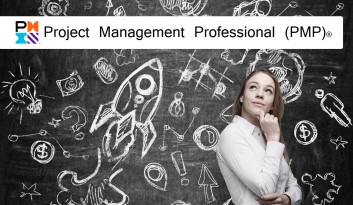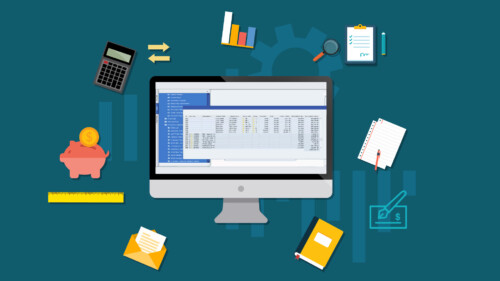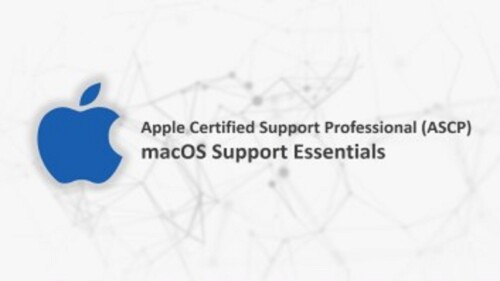Description
Overview
This course will teach students about information systems risk. Topics covered include risk identification, assessment, evaluation, response, and monitoring, as well as information systems control design and implementation.
Series Taught By: John Glover
Available CEUs for Course Series Completion: 6
Students can earn up to 6 CEUs for fully completing this course series. This information will be displayed on the certificate of completion. Learn More
Today’s business world is fast-paced and continuously changing. Even the most successful organisations experience projects that run over budget and take longer than expected; Studies have shown that those that invest in project management training get better outcomes with fewer resources and on time. PMP ® certification helps individuals work smarter and perform better, while also helping project managers advance their careers. You will be a recognised project manager with the most trusted certificate in the world after completing this course and will stand out from the crowd and have more employment options. PMP® demonstrates that you are a better worker and that you can expand your organization’s influence in the workplace and throughout the world by driving business success.
Objectives
DOMAIN PERCENTAGE OF ITEMS ON TEST
- People 42%
- Process 50%
- Business Environment 8%
- Total 100%
DOMAIN I PEOPLE—42%
- Manage conflict – Interpret, Analyze and Evaluate the appropriate conflict resolution solution
- Lead a team – Establish a clear vision and goal, encourage diversity and inclusiveness, and place a premium on servant leadership. Motivate, inspire, and influence team members and stakeholders.
- Support team performance – Support, appraise, feedback and performance review.
- Empower team members and stakeholders – Focus on team strengths, accountability and decision-making authority.
- Ensure team members/stakeholders are adequately trained – Training need and outcomes and the required recourses, for successful training.
- Build a team – Project requirements, team skills and knowledge transfers.
- Address and remove impediments, obstacles, and blockers for the team – Determine and prioritize critical impediments, obstacles, and blockers for the team
- Negotiate project agreements – Analyze the scope of the agreement’s discussions, establish the final goal(s), and plan the agreement’s negotiations and strategy.
- Collaborate with stakeholders – Evaluate engagement needs for stakeholders, expectations, and project objectives
- Build shared understanding – Break down the situation to identify the root cause of a misunderstanding
- Engage and support virtual teams – Examine virtual team member needs, investigate alternatives and implement alternative options.
- Define team ground rules – Communicate organizational principles with team and external stakeholders
- Mentor relevant stakeholders – Allocate the time to mentoring and determine mentoring opportunities
- Promote team performance through the application of emotional intelligence – Assess behaviour using personality indicators, and modify important project stakeholders’ emotional requirements.
DOMAIN II PROCESS—50%
- Execute project with the urgency required to deliver business value -Assess opportunities to deliver value incrementally
- Manage communications – Analyze and Determine communication methods, channels, frequency, and level of detail for all stakeholders
- Assess and manage risks – Determine and prioritize risk management options
- Engage stakeholders – Analyze, categorize and engage stakeholders
- Plan and manage budget and resources – Estimate, anticipate and monitor budgetary needs based on the scope of the project and lessons learned from past projects
- Plan and manage schedule – Estimate project tasks, utilize benchmarks and scheduling
- Plan and manage the quality of products/deliverables – Determine quality standard required for project deliverables
- Plan and manage scope – Determine and prioritize requirements, Break down, monitor and validate scope
- Integrate project planning activities – Collect and analyze data to make informed project decisions
- Manage project changes – Anticipate and embrace the need for
- Plan and manage procurement – Define, communicate and manage resource requirements and needs
- Manage project artefacts – Determine the requirements (what, when, where, who, etc.) for managing the project artefacts
- Determine appropriate project methodology/methods and practices – Assess project needs, complexity, and magnitude
- Establish a project governance structure – Determine appropriate governance for a project (e.g., replicate organizational governance)
- Manage project issues – Recognize when a risk becomes an issue
- Ensure knowledge transfer for project continuity – Discuss project responsibilities within the team and outline expectations for the working environment
- Plan and manage project/phase closure or transitions – Determine criteria to successfully close the project or phase
DOMAIN III BUSINESS ENVIRONMENT — 8%
- Plan and manage project compliance – Confirm project compliance requirements and determine potential threats to compliance
- Evaluate and deliver project benefits and value – Document agreement on ownership for ongoing benefit realization
- Evaluate and address external business environment changes for impact on the scope – Changes in the external business environment (e.g., legislation, technology, geopolitics, and market) should be monitored, and the external business environment should be reviewed regularly for implications on project scope and backlog.
Support organizational change – Assess and evaluate the organizational culture
Audience
The course is best suited for Project Management Professionals with at least three (3) years of project management experience. Managers, executives, entrepreneurs, and anyone interested in ensuring they have mastered the abilities most valued by employers.
Prerequisites
You must fulfil specific educational and professional experience criteria to be eligible for the PMP® certification. All project management experience must have been obtained within the past eight years before the submission of your application.
Course Outline
Top of Form
INTRO TO SERIES
- Overview
INTRO TO PMI / PMP
- What Is PMP
INTRO TO PROJECTS
- What Is A Project
- What Is A Project Part 2
INTRO TO PMI PROJECT GROUPS
- PMBok Project Processes
- PMBok Project Processes Part 2
- PMBok Project Processes Part 3
- PMBok Project Processes Part 4
- PMBok Project Processes Part 5
THE PROJECT ENVIRONMENT
- The Project Environment
- The Project Environment Part 2
- The Project Environment Part 3
- The Project Environment Part 3
PROJECT ROLES
- The Project Manager
PROJECT PROCESSES: PROJECT INTEGRATION
- Project Processes: Project Integration Management
- Project Processes: Project Integration Mgmt Part 2
- Integration Processes: Develop Project Charter
- Integration Processes: Develop Project Plan
- Integration Processes: Develop Project Plan Part 2
- Integration Processes: Develop Project Plan Part 3
- Integration Processes: Direct Project Work
- Integration Processes: Manage Project Knowledge
- Integration Processes: Control Project Work
- Integration Processes: Integrated Change Control
- Integration Processes: Close Project Or Phase
PROJECT PROCESSES: PROJECT SCOPE
- Project Processes: Project Scope Management
- Project Processes: Project Scope Management Part 2
- Project Processes: Project Scope Management Part 3
- Scope Processes: Plan Scope Management
- Scope Processes: Collect Requirements
- Scope Processes: Collect Requirements Part 2
- Scope Processes: Collect Requirements Part 3
- Scope Processes: Define Scope
- Scope Processes: Create WBS
- Scope Processes: Validate Scope
- Scope Processes: Control Scope
PROJECT PROCESSES: PROJECT SCHEDULE
- Project Processes: Project Schedule Management
- Schedule Processes: Plan Schedule Management
- Schedule Processes: Define Activities
- Schedule Processes: Sequence Activities
- Schedule Processes: Estimate Activity Duration
- Schedule Processes: Estimate Activity Duration Pt2
- Schedule Processes: Estimate Activity Duration Pt3
- Schedule Processes: Develop Schedule
- Schedule Processes: Control Schedule
PROJECT PROCESSES: PROJECT COST
- Project Processes: Project Cost Management
- Project Processes: Project Cost Management Part 2
- Cost Processes: Plan Cost Management
- Cost Processes: Estimate Costs
- Cost Processes: Estimate Costs Part 2
- Cost Processes: Determine Budget
- Cost Processes: Control Costs
PROJECT PROCESSES: PROJECT QUALITY
- Project Processes: Project Quality Management
- Project Processes: Project Quality Management Pt.2
- Project Processes: Project Quality Management Pt.3
- Project Quality Mgmt: Plan Quality Management
- Project Quality Mgmt: Manage Quality
- Quality Mgmt Processes: Control Quality
PROJECT PROCESSES: PROJECT RESOURCES
- Project Processes: Project Resource Management
- Project Processes: Project Resource Mgmt Part 2
- Project Resource Mgmt: Plan Resources
- Resource Processes: Estimate Activity Resources
- Resource Processes: Acquire Resources
- Project Processes: Develop Team
- Project Processes: Develop Team Part 2
- Project Processes: Develop Team Part 3
- Project Processes: Develop Team Part 4
- Resource Processes: Manage Team
- Resource Processes: Manage Team Part 2
- Resource Processes: Control Resources
PROJECT PROCESSES: PROJECT COMMUNICATIONS
- Project Processes: Communications Mgmt
- Project Processes: Communications Mgmt Part 2
- Communications Processes: Plan Comms Mgmt
- Communications Processes: Plan Comms Mgmt Part 2
- Communications Processes: Plan Comms Mgmt Part 3
- Communications Processes: Manage Comms
- Communication Processes: Monitor Comms.
PROJECT PROCESSES: PROJECT RISK
- Project Processes: Project Risk Management
- Project Processes: Project Risk Management Part 2
- Risk Processes: Plan Risk Management
- Risk Processes: Identify Risks
- Risk Processes: Perform Qualitative Risk Analysis
- Risk Processes: Perform Quantitative Risk Analysis
- Risk Processes: Plan Risks Responses
- Risk Processes: Implement Risk Responses
- Risk Processes: Monitor Risk
PROJECT PROCESSES: PROCUREMENT MANAGEMENT
- Project Processes: Project Procurement Mgmt
- Project Processes: Project Procurement Mgmt Pt2
- Procurement Processes: Plan Procurement Mgmt
- Procurement Processes: Plan Procurement Mgmt 2
- Procurement Processes: Conduct Procurements
- Procurement Processes: Control Procurements
PROJECT PROCESSES: STAKEHOLDER MANAGEMENT
- Project Processes: Project Stakeholder Mgmt
- Stakeholder Processes: Identify Stakeholders
- Stakeholder Processes: Identify Stakeholders Pt2
- Stakeholder Processes: Stakeholder Engagement 2
- Stakeholder Processes: Manage Stakeholders
- Stakeholder Processes: Monitor Stakeholders
PMBOK REVIEW
- The Project Management Body Of Knowledge
SAMPLE TEST QUESTIONS
- Exam Preparation Pmp
Exam Preparation Part 2 Pmp



